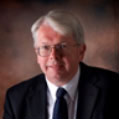A wide variety of radiofrequency (RF) devices are subject to Federal Communications Commission (FCC) technical and equipment authorization requirements in order to minimize the risk of harmful interference with radio services and to meet other statutory and policy objectives. Section 302 of the Communications Act of 1934, as amended, authorizes the FCC to make reasonable regulations governing the interference potential of devices that emit RF energy and can cause harmful interference to radio communications.
The FCC generally implements this authority by establishing technical rules for RF devices. For example, Part 15 of the Commission’s rules sets forth the technical requirements for unlicensed devices—intentional and unintentional radiators; Parts 22, 24, and 27 present the technical requirements for transmitters used in various commercial mobile radio services; and Part 90 specifies the technical requirements for transmitters used in private land mobile radio services.
FCC rules are adopted through an open rulemaking process in which the FCC gives the public notice that it is considering adopting or modifying rules on a particular subject and seeks the public’s comments. The Commission then considers the comments received in developing final rules.
Comments can be filed electronically using the Internet by accessing the Commission’s Electronic Comment Filing System, ECFS. All comments and documents related to a rulemaking proceeding can be viewed online.
One of the primary ways in which the Commission ensures compliance with the technical rules is through the equipment authorization program for RF devices, which is codified in Part 2 of the FCC rules. This program ensures that RF devices comply with the Commission’s technical and equipment authorization requirements before they can be imported to or marketed in the United States. The Office of Engineering and Technology (OET) administers the day-to-day operation of the equipment authorization program.
The Enforcement Bureau (EB) is the primary FCC unit responsible for enforcing the provisions of the Communications Act as well as the Commission’s rules, orders, and various licensing terms and conditions. The FCC has an online Consumer Complaint Center to enable interested parties to file complaints. The Enforcement Bureau’s Spectrum Enforcement Division, in conjunction with regional and field offices, is responsible for responding to interference complaints involving FCC licensees.
The Commission has established an experimental licensing program to provide for the introduction of new and innovative products prior to final equipment authorization. Each year, the Office of Engineering and Technology typically grants more than 2,000 experimental licenses. Many of the services and technologies deployed today were first tested under the experimental licensing program. Moreover, many experimental licenses are currently supporting work aiming towards the introduction of next-generation 5G services. New types of experimental licenses have been established to allow greater flexibility for parties—including universities, research labs, health care facilities, and manufacturers of radio frequency equipment—to develop new technologies and services while protecting incumbent services against harmful interference.
The FCC provides a number of resources to help educate and answer questions that consumers and the telecom industry may have regarding FCC requirements.
- The Commission has a Knowledge Database (KDB) that provides information on equipment authorization requirements. Interested parties can submit inquiries concerning equipment authorization matters (FCC rules Part 2, Part 15, etc.) to the FCC Office of Engineering and Technology (OET) Laboratory Division. The OET publishes equipment authorization procedures and measurement guidance in the form of FCC Public Notices and Knowledge Database (KDB) publications.
- Information about general FCC matters beyond equipment authorization is available at the FCC Consumer and Governmental Affairs Bureau (CGB) Consumer Help Center.
- Questions about wireless transmitting station licensing matters can be submitted at the FCC Wireless Telecommunications Bureau (WTB) Support site.
- For information and questions about RF radiation safety and health concerns for antennas installed on buildings, towers, and cluster sites, please see the FCC OET RF Safety FAQ site.
 Bill Hurst is Chief of the Technical Research Branch, Laboratory Division, Office of Engineering and Technology of the Federal Communications Commission (FCC). His responsibilities at the FCC include technical research, support for the Commission’s equipment authorization program, participation on domestic and international standards committees, accreditation activities, and coordination with other government agencies and groups concerned with conformity assessment policies and rules.
He is involved with international trade issues including technical barriers to trade (TBT) and various trade agreements. To facilitate the acceptance of testing and certification of telecommunication products by the Commission, he oversees the implementation of Mutual Recognition Agreements (MRAs) between the United States and the European Union, Japan, Canada, Mexico, Israel, the Asia-Pacific Economic Cooperation (APEC), and the Inter-American Commission for Telecommunications (CITEL).
Bill Hurst is Chief of the Technical Research Branch, Laboratory Division, Office of Engineering and Technology of the Federal Communications Commission (FCC). His responsibilities at the FCC include technical research, support for the Commission’s equipment authorization program, participation on domestic and international standards committees, accreditation activities, and coordination with other government agencies and groups concerned with conformity assessment policies and rules.
He is involved with international trade issues including technical barriers to trade (TBT) and various trade agreements. To facilitate the acceptance of testing and certification of telecommunication products by the Commission, he oversees the implementation of Mutual Recognition Agreements (MRAs) between the United States and the European Union, Japan, Canada, Mexico, Israel, the Asia-Pacific Economic Cooperation (APEC), and the Inter-American Commission for Telecommunications (CITEL).
